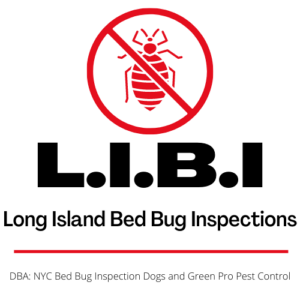When the winter winds start blowing and the temperature starts to plummet many insects struggle to survive. Bed bugs are no exception. While the resilience of these pests can’t be denied even they have to bow to mother nature.
Like all insects bed bugs are affected by the changing seasons. However, unlike some pests they don’t hibernate. They don’t disappear during the winter. But that doesn’t mean their behavior and biology don’t change during the colder months.
Reduced Activity
Bed bugs are ectothermic. That means their body temperature is regulated by their environment. As temperatures drop during winter bed bugs will experience a noticeable decrease in metabolic activity. This leads to a natural reduction in their activity. Colder temperatures also impact their feeding habits, slowing down their meal cycles.
Reduced Reproduction Rates
Bed bugs reproduce through a process called traumatic insemination, where males pierce the abdomen of females in order to inseminate them. During the warmer months the process of reproduction is accelerated. It’s one of the reasons bed bug infestations can happen so quickly. But in colder conditions the process is slowed down. Consequently infestations may not spread as rapidly during the winter months. \
However, this is merely a temporary respite. When the temperature begins to rise in spring bed bug reproduction rates will quickly return to normal.
Longer Developmental Cycles
The growth cycle of the bed bug is greatly influenced by the ambient temperature of their environment. In colder conditions the developmental process takes longer. This means that eggs may require more time to hatch, and overall life cycle of the bed bug (egg to nymph to adult) may be extended during the winter months.
Survival Instincts
Bed bugs are resilient creatures and they’ve developed certain survival strategies that allow them to endure unfavorable, or even harsh, conditions. During the winter they can go into a state of diapause, a kind of dormancy, which helps them to conserve energy. This allows them to survive for long periods without feeding, making it possible for them to endure a long winter chill.
Extreme cold can, and will, kill a bed bug. But those temperatures need to be below zero and the bed bug needs to be expose to those subzero temps for more than four days. In most cases the average bed bug has the survival skills they need to survive a winter blast and come back stronger than ever.
Greater Need for Shelter
While bed bugs may be less active during the winter they don’t disappear entirely. In fact, the cold temperatures are much more likely to force them indoors, looking for a way to escape the harsh weather outside.
Houses, hotels, and office buildings offer a warm and stable environment for hungry bed bugs looking to survive the winter season. As we know these pests are resourceful and they’re experts at finding a way to get closer to their human prey. In spite of the cold weather bed bug infestations can, and will, persist. Though the temperature may be dropping outside you may still see signs of bed bug activity in your home or office.
The Human Factor
One major influence on bed bug behavior during the winter season is the human factor. Bed bugs are parasites and their existence is closely tied to the behavior of their host. In this case that’s us. What we do impacts their behavior.
During the winter people tend to spend more time indoors. This offers greater opportunities for bed bugs to feed. Winter also brings holiday travel which helps bed bugs spread to new locations even during the coldest months of the year. The combination of holiday travel and indoor activities provide bed bugs with ample opportunities to spread and infest new environments.
Dealing with Bed Bugs this Winter
While bed bugs may experience reduced activity and slower reproduction rates during the winter months, they do not disappear entirely. So it’s important to remain vigilant and continue to take all the necessary preventative measures to avoid an infestation.
If you see signs of bed bug activity during the winter months contact a professional inspection and removal service as soon as possible. Don’t gamble that the cold weather will drive the pests away. If you’re seeing signs of activity now they’re only going to increase once with warmer temperatures arrive. The sooner you act the better.
Published by Scott Palatnik
If you believe you’ve brought bed bugs into your home or office give us a call. We can Help!
Now with 2 locations. On Long Island @516-619-6149 or in NYC @ 212-299-9186
We are Long Island Bedbug Inspections.
Your Bedbug Inspection and Elimination Solution.


